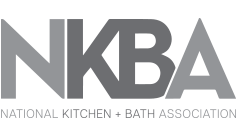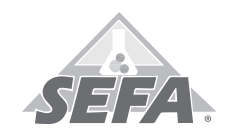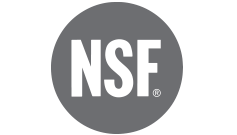The Scientific Equipment and Furniture Association
In today’s rapidly advancing scientific landscape, the design and functionality of laboratories are critical to ensuring safety, efficiency, and innovation. The Scientific Equipment and Furniture Association (SEFA) plays a pivotal role in setting the standards for how labs around the world are equipped and furnished. Since its founding in 1988, SEFA has been at the forefront of promoting best practices, setting safety standards, and fostering collaboration among manufacturers, lab planners, and facility managers.
Whether you’re involved in lab design, managing research facilities, or manufacturing lab equipment, SEFA’s work is integral to creating environments where scientific research and education can thrive.
Who Does SEFA Represent?
SEFA brings together a diverse group of professionals and businesses involved in every aspect of laboratory design and furnishing. Their members include:
Manufacturers of Lab Equipment and Furniture: SEFA represents companies that design and produce everything from lab benches and fume hoods to specialized storage systems and safety equipment. These manufacturers depend on SEFA’s standards and certifications to ensure their products meet the needs of modern laboratories and comply with international safety regulations.
Laboratory Planners and Architects: Professionals who design laboratories rely on SEFA for guidance on creating spaces that are functional, safe, and adaptable to evolving research needs. Whether designing for academic institutions, pharmaceutical companies, or industrial labs, these planners use SEFA’s standards to guide their decisions.
Facility Managers and Lab Operators: Lab managers are responsible for maintaining safe and efficient work environments. SEFA provides these professionals with best practices, training, and resources to optimize lab operations, ensuring that equipment and furnishings are up to the task.
Universities and Research Institutions: Educational and research organizations depend on SEFA standards to outfit their labs with safe, durable, and efficient furniture and equipment. By adhering to SEFA’s guidelines, these institutions ensure that their facilities are prepared for cutting-edge research and teaching.
What Does SEFA Do?
1. Setting Industry Standards
SEFA is best known for developing and publishing standards that govern the design, manufacture, and installation of laboratory furniture and equipment. These standards ensure that labs are safe, functional, and built to last, providing a benchmark for manufacturers, architects, and facility managers to follow.
One of SEFA’s most significant contributions is the SEFA Recommended Practices, a series of guidelines that cover everything from material durability and chemical resistance to ergonomics and environmental considerations. These standards are recognized globally, helping ensure consistency and quality across labs in different industries and regions.
2. Product Testing and Certification
Safety is paramount in any laboratory, and SEFA plays a key role in certifying products that meet the highest safety and performance standards. SEFA-certified products undergo rigorous testing to ensure they can withstand the unique demands of a laboratory environment, including exposure to chemicals, heat, and regular heavy use.
- Lab Benches and Workstations: SEFA certification ensures that lab furniture is durable, resistant to chemicals, and ergonomically designed to meet the needs of lab personnel.
- Fume Hoods and Ventilation Equipment: SEFA-certified ventilation systems protect lab workers from exposure to harmful fumes and ensure a safe working environment.
- Storage Systems: SEFA certification ensures that storage solutions, such as chemical cabinets, meet safety standards for hazardous materials.
3. Education and Professional Development
SEFA is deeply committed to educating its members and the broader scientific community on best practices for laboratory design and safety. Through webinars, conferences, and certification programs, SEFA offers ongoing professional development opportunities for lab planners, manufacturers, and facility managers.
For those new to the industry or looking to expand their knowledge, SEFA provides training on topics ranging from safety standards to lab optimization. These educational resources help professionals stay current with the latest advancements in lab design and technology, ensuring that labs operate safely and efficiently.
4. Fostering Collaboration and Innovation
SEFA provides a platform for manufacturers, architects, and lab managers to collaborate and share knowledge, driving innovation in laboratory design and equipment. By bringing together experts from different fields, SEFA fosters an environment where ideas can be exchanged and new solutions to lab challenges can be developed.
One of SEFA’s flagship events is the Annual SEFA Lab Design Conference, where industry leaders gather to discuss emerging trends, new technologies, and best practices in laboratory design. This event serves as a valuable networking opportunity and a hub for the latest innovations in lab furniture and equipment.
5. Sustainability and Environmental Responsibility
As sustainability becomes increasingly important in all industries, SEFA is committed to promoting environmentally responsible practices in lab design and manufacturing. SEFA’s standards encourage the use of sustainable materials, energy-efficient products, and waste reduction strategies in lab construction and operation.
In addition to fostering sustainability in product design, SEFA also supports initiatives that promote energy-efficient labs, which can significantly reduce the environmental impact of research and development activities. This focus on sustainability helps labs not only meet regulatory requirements but also contribute to global efforts to reduce carbon footprints.
SEFA and the Future of Lab Design
The scientific landscape is continually evolving, and with it, the demands placed on laboratories. SEFA is at the forefront of addressing these changes, from the increasing need for flexible lab spaces to the integration of advanced technologies like automation and smart equipment. As research becomes more interdisciplinary and global in scope, SEFA’s standards and guidance ensure that labs remain adaptable, safe, and efficient.
With trends like modular lab designs, enhanced safety features, and the integration of sustainable practices gaining traction, SEFA is helping laboratories around the world meet the challenges of the future. Their commitment to safety, innovation, and sustainability ensures that lab environments will continue to support cutting-edge research and education for years to come.
Conclusion
Whether you’re involved in designing labs, manufacturing equipment, or managing scientific facilities, the Scientific Equipment and Furniture Association (SEFA) is an indispensable resource. Through its development of industry standards, product certification, and commitment to education and sustainability, SEFA helps ensure that laboratories are safe, functional, and future-ready.
In a world where scientific innovation is key to progress, SEFA’s work in shaping the spaces where that innovation happens is more important than ever. By setting the highest standards for laboratory design and equipment, SEFA is helping create environments where scientists and researchers can thrive, driving advancements that benefit society as a whole.








